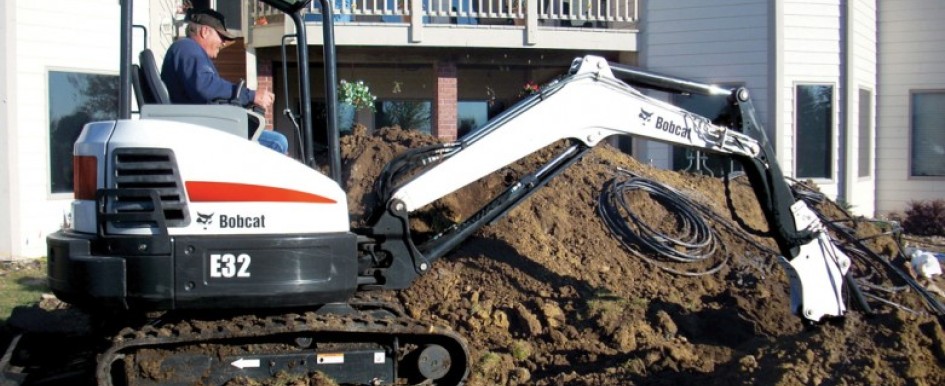
Not long ago, the United States economy experienced a severe recession that not only devastated the housing market in many areas, but also heavily impacted construction business owners and their equipment fleets. Because purchasing a compact track loader, skid-steer loader or compact excavator seemed too risky during this time, many contractors turned to rental. Renting equipment was and still is a smart decision in certain situations. Renting allows you to take on short-term projects, access new revenue sources, use the newest and most advanced equipment, reduce operating costs and eliminate storage requirements. Renting also offers a rent-to-purchase option at the end of the rental period. Review these six advantages to consider whether renting is the right option for you.
1. Take on short-term projects
Adding equipment to your fleet is dependent on what type of work you are doing. Rental may be the best option when taking on new projects that take less time. Your operators may be prepping a jobsite one week and installing utilities or moving materials the next week. If a permanent purchase is not required or cannot be justified, rental equipment can provide a temporary solution and supplement an existing fleet without the need for ownership.
2. Expand with new services
If you want to expand your services, renting an attachment may be a good decision. A well-paired loader or excavator attachment may enhance a project, delay purchasing a dedicated piece of equipment and open up new revenue sources. For instance, you may be missing some profitable expansion opportunities if your machine is only used to dig footings for commercial construction. Renting a compact excavator with a clamp could help you add land-clearing projects.
3. Harness the use of specialized equipment & attachments
You can strategically expand your services and maximize a rental contract by adding larger, smaller or more sophisticated equipment. Attachments can also stretch your fleet resources and allow you to easily adjust to changing markets and applications. Some attachments have been designed to vertically integrate with the machine’s electronics and hydraulics, providing for more flexibility and convenience while on multiple jobsites. Also, consider renting specialty compact attachments for one-off jobs. Rotary cutters, brush chippers, forestry cutters, soil conditioners and stump grinders are just a few rental attachments that have multifunctional capabilities that can help expand your services.
4. Decrease operating costs
Another advantage of renting is that you can complete projects without the additional expense of servicing the equipment beyond routine maintenance.
Rental can decrease the cost of maintenance, repairs and equipment downtime because when you rent, it is the rental store or dealership’s responsibility. They should be following a routine maintenance schedule for engine oil and filters and hydraulic filter changes to help promote the machine’s long-term durability.
5. Reduce the need for storage
Making space to store compact equipment or attachments may not be feasible for some business owners. Once a project is completed, it is easier for some to return the equipment to a rental store or dealership, where it can be properly stored. This means it is important to consider the space needed to properly store equipment that is not out for rent, as that can be an additional incurred cost.
6. Consider a rental purchase option
Some compact equipment and attachments may become permanent additions to your fleet. A rental purchase option (RPO) allocates a portion of a rental fee toward purchasing a machine or attachment, or returning it to a rental center or dealership at the end of the rental period.
If you are considering an machine purchase eventually, it’s important to structure an RPO contract and start a conversation with your representative to ensure this type of contract is available. You need to determine and monitor the crossover point at which you have built enough equity in a machine, through a rental contract, that you could effectively lower a rental payment by exercising an RPO.
Purchasing a machine does carry a greater commitment. So, depending on your financial position and your project backlog, you may decide to pay a flat monthly rental rate to deliver a machine to a jobsite, rather than buying outright.
Fleet expansion takes careful consideration and planning. However, renting compact equipment can help you better budget for equipment expenses and reduce your overall cost of ownership on a particular project. The final decision is dependent on what services you want to offer and what projects you are looking to complete in the most efficient and affordable manner.
